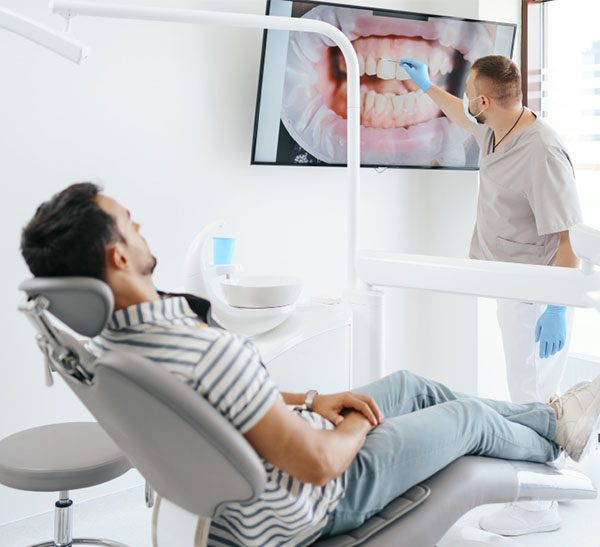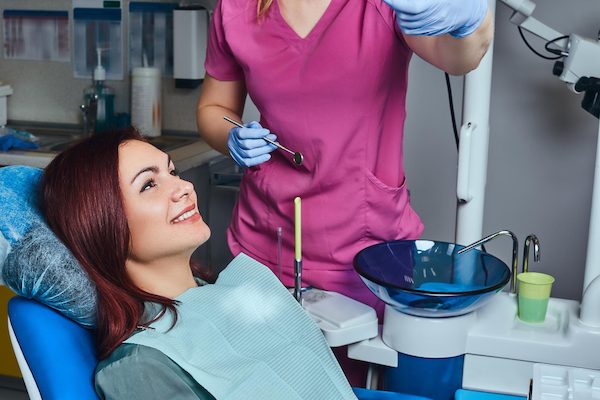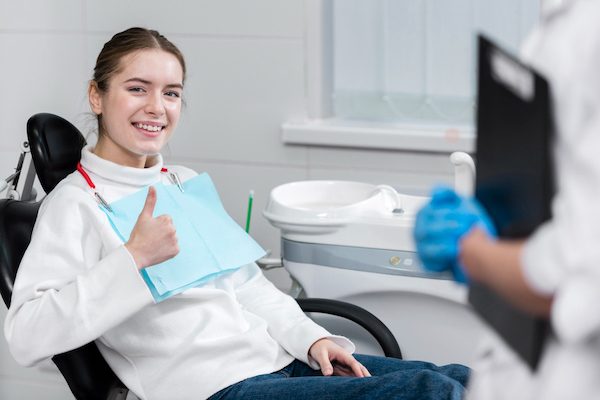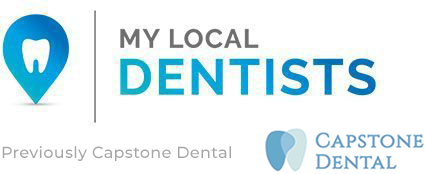Dental Extractions and Wisdom Teeth
Dental Extractions and Wisdom Teeth Seven Hills
Dental extraction refers to the process through which a dentist is able to pull out a tooth from its alveolus situated in the bone.

Extractions can be classified into two categories:
- Simple Extractions: These are done on teeth and are only visible in the mouth. A simple extraction is usually done by a general dentist, who injects the affected area with local anaesthesia. After this, the dentist employs a dental elevator to pry and shift the tooth and then uses forceps to extract it.
- Surgical Extractions: These are more complex and usually done by oral surgeons applying different techniques. Sometimes, a tooth may be fractured at the gum line or impacted, making a surgical extraction necessary. These procedures necessitate the involvement of the gum through an incision and the excision of bone around the tooth.
- It is more seriously affected than for a filling or root canal work to be done on it.
- The tooth has been loosened due to the effect of the gum disease.
- Too many teeth are present, causing crowding.
- You’re having dentures or dental implants.
Wisdom Teeth Extractions
Your last set of molars, the ‘third molars’ commonly known as ‘wisdom teeth’, generally erupt at about 17-21 years of age. While some individuals will never run into trouble with them, others must have them removed.

Common Issues with Wisdom Teeth
Impaction
It is common for the third molars, commonly known as the wisdom teeth, to either partially or fully erupt; thus, they end up as impacted teeth. These can become painful, infected, and damage the adjacent teeth.
Crowding
Even if they do emerge, wisdom teeth can cause crowding and misaligning of other teeth, undoing years of orthodontic work.
Infection
Non-erupted or partially erupted third molars may form a flap of the gum that retains food and bacteria, which causes painful infections and eventual gum diseases.
Cysts and Tumours
In rare cases, impacted wisdom teeth can lead to cysts or tumours, damaging the jawbone and surrounding teeth.
The Extraction Process
Consultation
Your Seven Hills dentist or oral surgeon will assess the state of your teeth and may recommend and take X-rays to understand the position of the wisdom teeth and their possible interaction with other structures.
Preparation
Local anaesthesia or sedation will be administered to ensure comfort during the procedure.
Extraction
For simple extractions, the tooth is loosened and removed. An incision is made for surgical extractions, and the tooth may be sectioned to ease the extraction process.
Post-Extraction Care
Proper aftercare is crucial for healing. This includes managing swelling and pain and ensuring the extraction site remains clean to prevent infection.

Recovery and Aftercare
- After the operation, a patient will have to lie down for a while and do nothing until the post-operative anaesthesia has worn off.
- Recovery from extractions can take a few days to a couple of weeks.
- During the first 24 hours, you should not heavily rinse your mouth.
- After the extraction, we will ask you to bite on a piece of gauze in your mouth to help control the bleeding. You can take it out after 30 minutes.
- If bleeding persists, please use our spare gauze and bite firmly for 30 minutes.
- A soft diet is recommended at least for the first couple of days.
- After the first day, please rinse your mouth with a cup of warm water after every meal. A teaspoon of salt can help rinse the socket and keep it clean. Do this for 2 weeks.
- Alcohol and smoking should be avoided for 2 weeks because they can affect and slow the healing process.
- Please continue cleaning and brushing as usual, but be careful around the extraction site.
Avoid chewing on the extraction area or touching it with your fingers or tongue. At this stage, it’s best to let it heal simply.
Sometimes, in the days following surgery, you may notice that your face and jaw are red, puffy, or bruised. To facilitate this, applying ice packs lightly on your cheeks is advisable. We may also prescribe other medicines for pain for several days after the surgery, mainly if the medicine is inflammatory in nature.
Nonetheless, most people do not require other medicines, which they can quickly obtain from a pharmacy.
However, if you continue to experience bleeding beyond 24 hours or you have any other concerns, please do not hesitate to contact us.
Dental Extractions and Wisdom Teeth Seven Hills
If you are dealing with pain or discomfort stemming from your wisdom teeth or have been informed that you may need to have your teeth extracted, do not hesitate!
Early evaluation and timely intervention can prevent complications and ensure better oral health.
Your Seven Hills dentists are here to provide the best care and answer any questions you may have about the extraction process.
Call us on (02) 8605 1696 or request an appointment online.
We are located at Shop 55, (Ground Floor) Seven Hills Plaza, 224 Prospect Hwy, in Seven Hills.
FAQs
How long does it take to recover from a wisdom tooth extraction?
Recovery time varies, but most people return to normal within a week. Complete healing of the jawbone can take a few months.
Are wisdom teeth always necessary to remove?
Not always. If wisdom teeth are healthy, fully erupted, and positioned correctly, they may not need removal. Your dentist can provide the best advice based on your specific situation.
What are dry sockets, and how can I avoid them?
When the clot formed in the socket dissolves, it leaves bare bones and nerves, leading to dry sockets. To avoid dry sockets, follow your dentist’s aftercare instructions, avoid smoking, and refrain from using straws for the first few days.
Can I go back to work or school after a tooth extraction?
Ideally, patients should take a minimum of 24 hours off work or school. Depending on the complexity of the extraction and how they feel, they may return to normal activities within a few days.
What should I do if I experience severe pain or swelling after an extraction?
Pain intensifies to a severe level, and the swelling growth could indicate infection or other complications. If you experience such symptoms, do not hesitate to visit your dentist.
